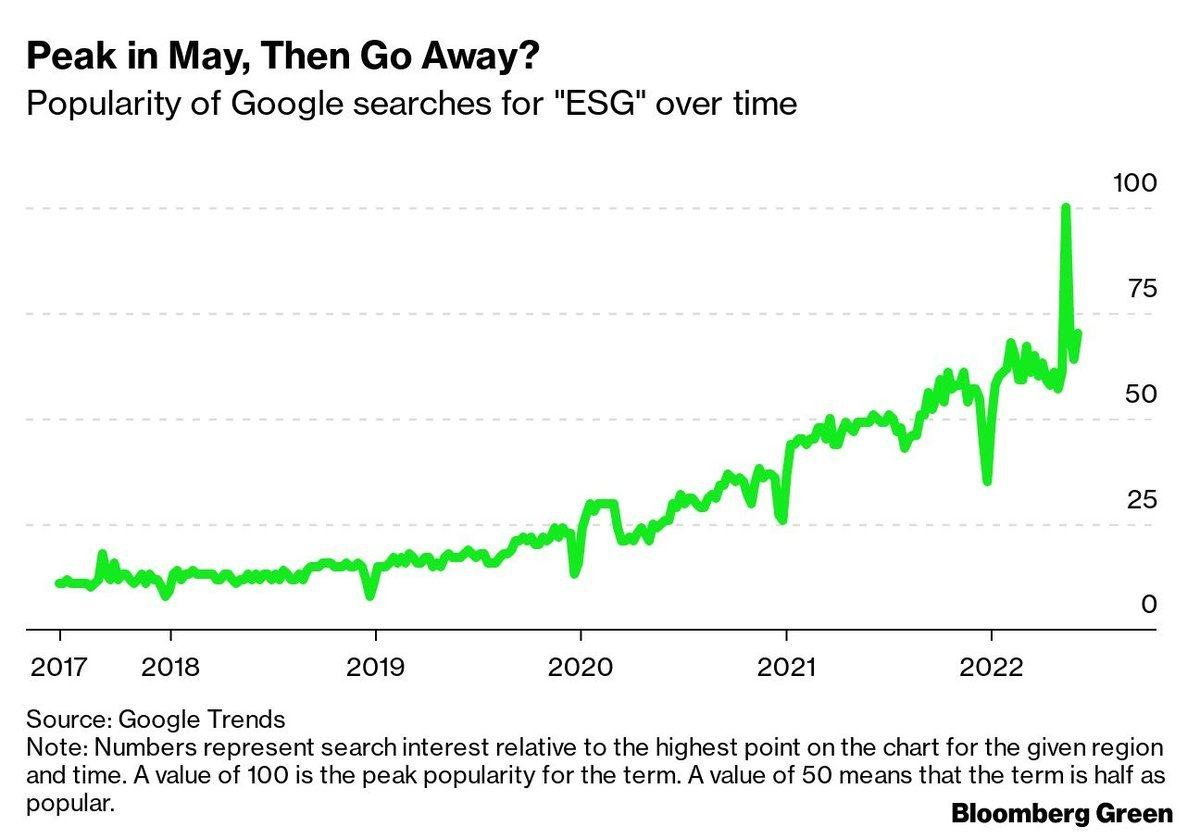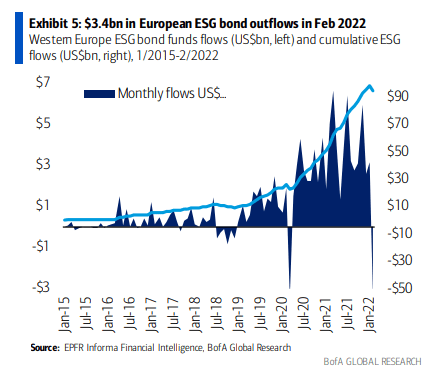This article was written exclusively for Investing.com
- Coal and natural gas are in demand across Europe amid an energy crisis
- ESG search trends and bond flows suggest the environmentally-centered theme has lost its cachet
- Investors can look to large European energy stocks that are reasonably valued
Earlier this week, Germany announced that it will restart coal-fired power plants to conserve natural gas. It’s another gut punch for the ESG (environment, social, corporate governance) crowd.
In the end, money talks (and usually wins). Right now, power prices in Europe are skyrocketing amid scorching temperatures. Moreover, adding insult to injury, the U.S. Freeport LNG facility shuttered LNG export activity after a debilitating fire.
All these factors squeeze the once-popular (and still-political) ESG movement.
Eyeing ESG
There are several ways investors can analyze growth (and declines) in ESG. One way is by gauging Google Search Trends. According to Bloomberg, ESG searches have dropped of late—a sharp contrast to steady growth over the last number of years.
Google Search Trends Suggest ESG Interest Has Paused

Source: Bloomberg, Google Data
The Flow Show
But like I said earlier, money matters above all else in financial markets. There’s one particularly jarring chart that global energy investors should take note of.
According to Bank of America Global Research, using EPFR flow of funds data, ESG bond flows in Europe have dropped. The last time we saw that was during the financial crash of March 2020.
This time is different because we are not in panic mode. Rather, fundamental shifts have taken place in Europe due to a confluence of factors, the Russia/Ukraine situation being at the top of the list. Plus, years of de-carbonization across the continent resulted in the current energy crisis.
European ESG Fixed Income Flows Turn Negative After Major Inflows From 2019 Through Early 2022

Source: BofA Global Research, EPFR Data
European Energy Companies In-Play
How can investors play the drop in ESG interest and a ‘renewed’ focus on energy strength? Consider long-term positions in stocks like Shell (NYSE:SHEL), (LON:RDSa); BP (NYSE:BP), (LON:BP); and TotalEnergies (NYSE:TTE), (EPA:TTEF). These three behemoths all feature attractive valuations and significant dividend yields.
According to the Wall Street Journal, respective trailing twelve-month P/E ratios are 9.0 and 8.7 on Shell and Total. BP has negative EPS over the last year, but its forward P/E is just 4.4, per BofA analysts’ forecast.
As for their juicy yields, the WSJ reports that Shell sports a 3.6% payout, BP boasts a 4.7% yield, and Total tallies a 5.5% distribution rate. This is a volatile space—consider that the US energy sector fund was up almost 70% on the year as of earlier this month but has since dropped to just a 34% YTD gain.
Bottom Line
ESG has turned into a dirty word. Investors should consider venturing across the pond for large, low-valued, high-dividend energy companies that will be depended on to provide the continent with old-school power from oil and natural gas. As the U.S. energy equity momentum peters out, demand might continue in European energy stocks.
